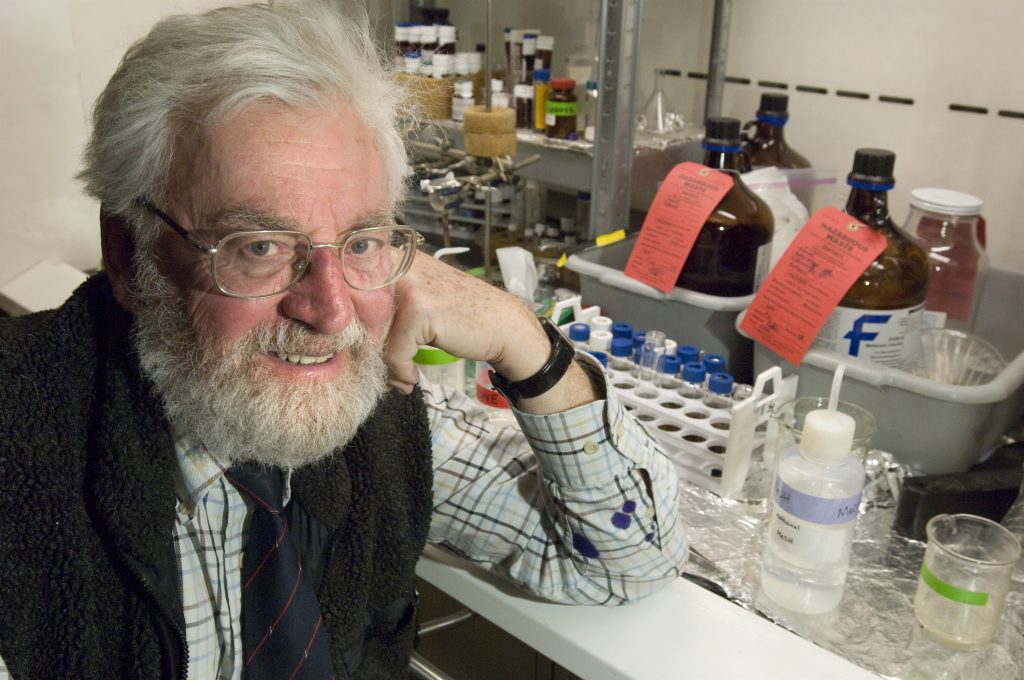Geoffrey Eglinton (1927 – 2016)

Geoffrey Eglinton (1927 – 2016)
Future: Geosciences
Geoffrey Eglinton revolutionized the identification of molecular structures and determination of chemical histories.
He was a Professor and Senior Research Fellow in Earth Sciences at the University of Bristol, U.K., Adjunct Scientist at Woods Hole Oceanographic Institution, Massachusetts, U.S., and Visiting Professor at Dartmouth College, New Hampshire, U.S.
He undertook some of the first studies of the processes affecting sedimentary organic matter and, at the same time, became a geologist.
Organic molecules from sedimentary rocks provide detailed information about Earth’s earliest life forms, temperatures of ancient oceans, environmental changes on continents, thermal histories of sedimentary rocks, and much more. Eglinton developed the tools to allow this remarkable expansion of knowledge about our planet and its history and pioneered modern investigations of chemical fossils in sedimentary rocks.
Eglinton’s laboratory introduced “molecular stratigraphy” as a means of following variations in ancient climates and drew on the work of oceanographers, paleontologists, and geologists. He provided a basis for recognizing the origins of hydrocarbons in petroleum and other deposits. He led in the elucidation of the origins of complex, biologically diagnostic molecules found in sediments.
By studying how their structures altered during storage in buried sediments, he established an entirely new means for examining the evolutions of sedimentary basins and their resident fossil fuels. He was the first to recognize that molecular products of marine algae served as recorders of sea-surface temperature and thus of ancient climatic variations. Because these techniques rely on lines of evidence not previously exploited, they have particular power and impact, providing clearly independent tests of theories about Earth’s history.
Eglinton was awarded the NASA Gold Medal for Exceptional Scientific Achievement (lunar carbon), the Hugo Muller Silver Medal and Theophilus Redwood Medal (Chemical Society), Treibs Gold Medal and Goldschmidt Medal (Geoochemical Society), the Coke and Wollaston Medals (Geological Society), Urey Medal (European Geochemical Society), Royal Gold Medal (Royal Society) and the Martin Gold Medal (Chromatographic Society).
He published more than 500 peer reviewed publications. More than 60 have been cited more than 60 times.
The 2008 Dan David Prize honors Geoffrey Eglinton in the field of Geosciences for his studies of organic chemical fossils, which revealed the inhabitants and climates of ancient worlds and the mechanisms by which their products yield essential resources for the future; for his pioneering and modern investigations of chemical fossils in sedimentary rocks; and for revolutionizing standards for the identification of molecular structures, introducing systematic considerations of chemical histories, and undertaking seminal studies of the molecular processes affecting sedimentary organic matter.


